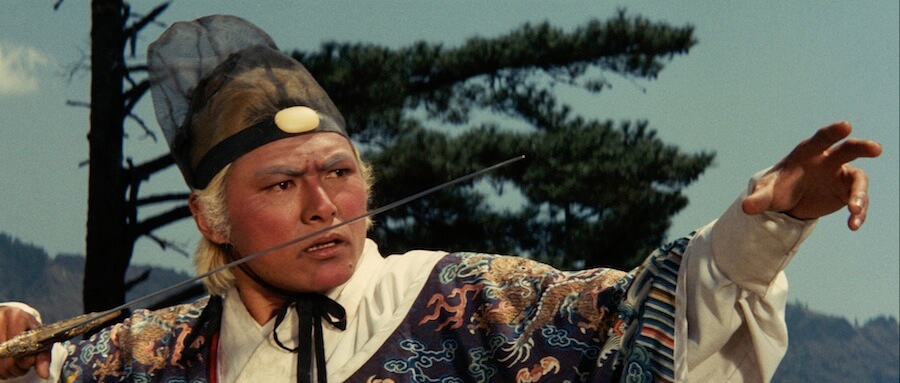‘Dragon Inn’ It’s not often that an action movie as beautiful as it is ass-kicking, but any filmmaker who wants to excel at both can always study 1967’s “Dragon Inn.” Long high up in the martial arts movie pantheon, the Taiwanese brawler offers the usual semi-comprehensible plot that’s mostly there as an excuse for beatdowns, swordplay and the occasional graceful stunt. The performers are acrobatic and photogenic, but the real star is the director, King Hu. He’s like a kid playing war with countless toys. Better yet he’s got a hell of an eye. RELATED: Review: “A Touch of Zen” brings back a great and unusual martial arts classic And there are a lot of toys. As in Hu’s 1971 epic “A Touch of Zen” — like “Inn,” newly restored and reissued — it concerns numerous forces trying to take out the last remaining members of a hunted family. A government official orders the execution of two children, sending his minions to a remote inn to await their arrival. There they find rebel fighters ready to stand in their way. Much of the middle half is trapped indoors, like “The Hateful Eight” with blades but with the same yen for poisoned cups. Eventually the survivors on both sides break into the great outdoors, where they’re free to launch into kinetic set pieces that seem like they could — and perhaps should — go on forever. Unusual as it may sound, one reason “Inn” is better than most genre grinders is this: its director wasn’t a seasoned action poet. It was only Hu’s second dalliance with wuxia, the name for this specific blend of fighting and heroics, which began in literature before expanding into other mediums. He entered the business as an art director before turning to acting and finally directing, where he cut his teeth on dramas and war films. “Inn” was only his second actioner (after the watershed effort that was 1966’s “Come Drink with Me”), but one would never guess. A lover of opera and history, he came at a beloved genre from an unusual angle, then proceeded to change it forever. RELATED: Interview: Anthony Mackie talks “Captain America: Civil War” and not growing up with comics Hu loves finding ever-fresh ways to film the cramped spaces of the inn, but he also loves when the movie finally opens up and heads outside. He keeps his cameras back for group melees but pushes in close so his actors can grandstand, shooting each badass so they fill the frame, making them look like giants roaming the earth. They’re like the gunslingers in Sergio Leone spaghetti Westerns: boldly confident and instantly iconic, as though made of marble, except when they launch into furious flurries of action. What Hu made was classy enough to wind up inside an austere art film — it’s the film showing during Tsai Ming-liang’s paean to dying movie houses, 2003’s “Good Bye, Dragon Inn” — but don’t think the elegance keeps it from delivering the goods. It’s for admirers of beauty and first-rate hurtin’ alike.
Director: King Hu
Stars: Lingfeng Shangguan, Chun Shih
Rating: NR
4 (out of 5) Globes
‘Dragon Inn’ is a martial arts classic as beautiful as it is thrilling

Janus Films
Follow Matt Prigge on Twitter @mattprigge















